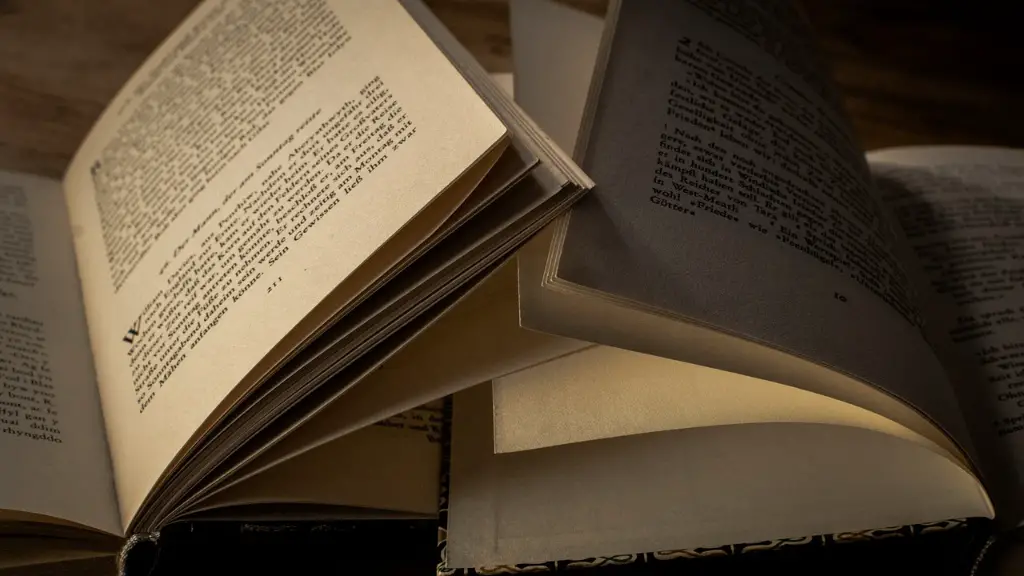What is Prose?
Prose is a form of written language consisting of complete sentences, generally spoken in natural language without having any particular meter, rhythmic structure, or rhyme. Prose is written in paragraphs, and each paragraph has an idea or focuses on a particular point in order to further the overall argument. It often uses common language and is not written with any particular poetic style or format. Prose is the most common form of written language and is used in books, novels, essays, newspapers, magazines, and other literary works.
Characteristics of Prose
The characteristics of prose can vary widely depending on the genre and purpose of the piece of writing. However, there are some common features that distinguish prose from other forms of writing. Prose is typically written in sentences and usually follows a linear structure and order. Descriptive language and words are often used to describe events, characters, and emotions. It is usually written in the third person, but can sometimes be written in the first or second person. In addition, prose often focuses on the development of characters and the resolution of a narrative or story.
What is Poetry?
Poetry is a type of literature that uses rhythm, rhyme, and other elements to convey emotions or ideas. It is often written in stanzas, and each line has a specific number of syllables. Poetry often uses literary devices such as personification, metaphor, and simile to evoke feelings and to describe the subject matter in creative ways. Unlike prose, which is written in paragraphs, poetry is composed in lines and stanzas that are often separated from one another by their length, number of lines, or specific structure.
Characteristics of Poetry
Poetry has a specific form and structure and requires rhyme, meter, and other elements. It often conveys abstract ideas, thoughts, and feelings, and uses imagery to create a vivid mental picture in the reader’s mind. Additionally, poetry can be used to tell a story or describe a situation. Poetry often seeks to evoke emotions in the reader, while also revealing deeper messages and truths. It can also be used to explore difficult or complex ideas and topics.
Differences Between Prose and Poetry
The main difference between prose and poetry is their form and structure. While prose is written in sentences and paragraphs, poetry is composed in lines and stanzas. Additionally, prose is often focused on the development of characters and the resolution of a narrative or story, while poetry typically conveys abstract ideas, thoughts, and feelings. Another difference between prose and poetry is the use of language and literary devices. Prose often uses descriptive language and words, while poetry has a specific form and uses literary devices such as personification, metaphor, and simile.
Factors to Consider When Writing in Prose and Poetry
When writing in prose and poetry, it is important to consider audience, purpose, tone, and style. Prose and poetry can have different effects on readers depending on how they are written, so it is important to be conscious of the factors that influence the overall piece. Additionally, it is important to be aware of the format and structure of the piece and to make sure each line and stanza follows a consistent pattern. For prose, it is important to make sure each sentence and paragraph flows well and furthers the argument and story.
Historical Examples of Prose and Poetry
Throughout history, numerous authors have used prose and poetry to explore ideas, express emotions, and tell stories. Examples of classic prose works include novels such as Jane Austen’s “Pride and Prejudice”, Leo Tolstoy’s “Anna Karenina”, and Ernest Hemingway’s “The Old Man and the Sea”. Classic examples of poetry include William Shakespeare’s “Sonnets”, Robert Frost’s “Stopping by Woods on a Snowy Evening”, and Emily Dickinson’s “Hope is the Thing With Feathers”.
Analysis of Prose and Poetry
Prose and poetry are often used interchangeably, but they have distinct characteristics and effects on readers. Prose usually tells a story and provides a linear narrative structure, while poetry is often focused on conveying abstract ideas and feelings. Additionally, prose typically follows a particular format and sequence, while poetry uses meter, rhythm, and rhyme to create a specific effect and to evoke emotions in the reader.
Styles and Genres of Prose and Poetry
Prose and poetry can be written in a variety of styles and genres. Prose can be written in many different genres such as fiction, nonfiction, drama, and historical narrative. Additionally, some prose works can be written in the form of a novel, short story, or essay. Poetry has many different genres and styles as well, such as odes, sonnets, haikus, limericks, and free verse.
Uses of Prose and Poetry
Prose and poetry are used in many different contexts and for various purposes. Prose is often used to tell stories and to provide information, while poetry is used to express emotions and to explore ideas. Prose is commonly used in books, novels, essays, newspapers, and magazines, while poetry is written for literary works, song lyrics, and speeches. Additionally, both prose and poetry are used to explore complex topics and to express deeper truths and messages.
Modern Applications of Prose and Poetry
In modern society, prose and poetry are used for various purposes. Prose is written for books, novels, plays, and essays, and it is often used to tell stories and inform readers. Poetry is used to express emotions and ideas, and it is often seen in song lyrics, advertisements, and greeting cards. Additionally, both prose and poetry can be used to examine difficult topics and to convey deeper messages in creative and meaningful ways.


